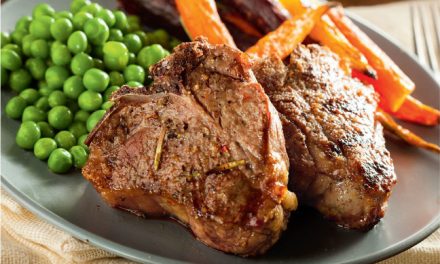You can buy all the local food you can possibly eat, but unfortunately, it won’t cure some of the farm sector’s cyclical or opportunist ills, such as the way it’s being battered now by huge market forces.
The latest case in point is the swelling financial threat to Ontario’s beef and pork industries. They received appreciable consumer support through the BSE beef crisis a few years ago, and hog price disaster in the late 1990s. Things started to improve, but now, big problems have returned. It’s made for a very short honeymoon for Leona Dombrowsky, who was reappointed in late October as the province’s agriculture, food and rural affairs minister.
Dombrowsky, from Tweed (near Belleville), was Premier Dalton McGuinty’s choice for the post for more than two years during his previous reign. He called her October 30 asking her to again lead the ministry, showing his appreciation for her stellar performance. She was particularly impressive in the summer, brokering a vitally important deal between the province and grain and oilseed farmers, for a highly coveted risk management insurance program. This effort endeared the provincial Liberal party to most farm groups, and basically wiped agriculture off the election agenda.
In fact, the summer and early fall were some of the best of times for farmers. Prices were rising, and consumers were expressing support for local farmers and local food. They still are.
But on the production side, since the election, Ontario pork, beef and fruit and vegetable producers have become highly vocal about increasing farm income challenges. The soaring Canadian dollar, rising costs for fuel and feed and new minimum-wage legislation tops the list of problems they say is quickly bringing them to their knees. Some of these concerns are federal matters, and the Canadian Federation of Agriculture started pounding the table in Ottawa following the federal finance minister’s end-of-October tax-break spree.
And back in rural Ontario, just prior to Dombrowsky’s reappointment, Ontario Federation of Agriculture president Geri Kamenz sent an urgent letter to Premier McGuinty, noting the province’s farmers have “immediate needs.” Topping the list, said Kamenz, is a solution to the farm income issue.
That plea stems from a meeting in early October hosted by the federation for the leaders of Ontario’s beef and pork organizations. There, Ian McKillop, president of the Ontario Cattlemen’s Association, said the cattle industry is worse off now than it was during the BSE crisis two years ago. That’s a shocking statement. Feedlot operators are losing up to $350 per head, he said, mostly from the rising value of the loonie. Increased feed costs and other inputs such as fuel are also contributing to the beef industry’s losses.
For his part, Curtiss Littlejohn, chair of Ontario Pork, said pig producers are losing up to $35 per hog. He said the Ontario pork industry is anticipating an “equity avalanche” in the coming months as producers exit the industry. Both McKillop and Littlejohn said emergency measures are needed if Ontario is to avoid a disaster.
The province’s export-oriented horticulture sector is also being hit hard by the strong dollar. Plus, it’s grappling with new minimum wage laws which it says will make Ontario-grown commodities uncompetitive with imports.
And none of these problems are related to consumer demand. Some oversupply occurs, but for the most part, Ontarians are hungry for the products their farmers grow.
To help, the federation is asking the province for commodity-specific support programs for producers, such as an insurance program for the beef sector, like the one grains and oilseed farmers negotiated with minister Dombrowsky.
Everyone will have to act fast. The farm sector will need to do a good job of explaining why it needs public support when food prices are creeping up. It’s a complex matter, and consumers and taxpayers may have little patience for more requests for programs with price tags in the millions.


